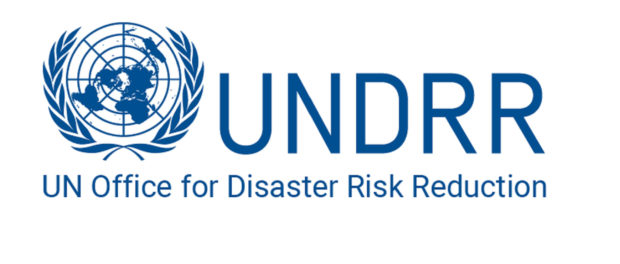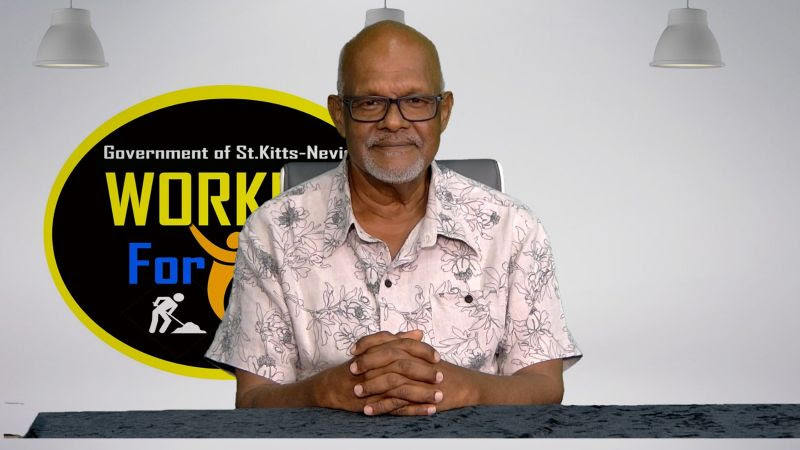CFBC LAUNCHES DISASTER RISK REDUCTION EDUCATION PROGRAMME
Get our headlines on WHATSAPP: 1) Save +1 (869) 665-9125 to your contact list. 2) Send a WhatsApp message to that number so we can add you 3) Send your news, photos/videos to times.caribbean@gmail.com
 UNDRR_Logo_HiRes
UNDRR_Logo_HiRes

Basseterre, St. Kitts, October 22, 2020 (SKNIS): The Clarence Fitzroy Bryant College (CFBC)/National Emergency Management Agency (NEMA) Disaster Risk Reduction (DRR) Education Programme was officially launched on October 22, 2020.
Speaking at the launch, , said that the programme was conceptualized by CFBC and developed in partnership with NEMA and funded by the USAID Bureau of Humanitarian Assistance (BHA).
The Research Triangular Institute (RTI), which is based in Costa Rica, represents the USAID BHA and has oversite of the project with technical expertise and competencies in disaster risk reduction and management within Latin America and the Caribbean countries and under the Regional Disaster Risk Assistance Programme (RDAP), noted Dr. Naraine.
He stated that the hallmarks of the curriculum are professional educators, the trainees, and social milieu.
Dr. Naraine said that the purpose of the programme is to build capacity through education as well as strengthening the relationships with organizations and people in communities “in order to build adaptive capacities vis-à-vis natural hazards and anthropogenic or human hazards that are ever-present and posing risks to human life, property and the environment of which we are a part.”
“Adaptive capacities will help us to build resilience in the event of a disaster relating to any of those hazards,” he said.
The programme, which utilizes the CEDEMA framework consists of six modules, which will be publicized, said Dr. Naraine. He added that the project is expected to develop a cadre of trainees who would become trainers and to further build capacity in the mainstream of the education system and in communities.
“The trainees will collaborate with the trainers now. They will become trainers and take it far and wide into the depths of our communities,” he said.
The launch follows all the preparation needed before delivering the sessions that will begin on October 26, 2020, said Dr. Naraine.
Samantha Fox, Director of Student Services, gave remarks on behalf of the President of CFBC, Jacqueline Austin, who said “sometimes the value for educational programmes can be overlooked, but we do hope that lessons learned in these sessions would be well received as it can be the difference between life and death.”
“Living in the Caribbean Region puts us at risk for a number of hazards such as earthquakes, hurricanes, volcanoes, and tsunamis,” she said. “While hazards are certainly not preventable their disastrous impact can be mitigated via preventative measures such as Disaster Risk Reduction Education such as we are launching today.”
It was noted that CFBC is proud to have received the only award granted to a Caribbean country among Latin America and the Caribbean to the call for papers under the RDAP theme of “Use knowledge, innovation and education to build a culture of safety and resilience at all levels including supporting DRR in primary and secondary education, strengthening coping mechanisms for high-risk populations, institutionalizing higher education in DRR.”
Dr. Austin said that DRR Education can save lives, prevent injury and build people’s resilience to hazards.
“A disaster risk reduction approach helps us consider our emergency response activities in light of existing and new disaster risks,” she said. “This enables us to design or adjust our activities so that our people and communities become safer and more disaster resilient.”
Dr. Austin added that the programme aims to “provide the knowledge, skills and attitudes that the public needs in order to develop resiliency to natural and manmade hazards that pose risks to lives, property and the economy in the Federation of St. Kitts and Nevis.”
She noted that the programme will become a model for other Caribbean countries to adapt to reduce risks of potential disasters in their communities.
Leave a comment
You must be logged in to post a comment.